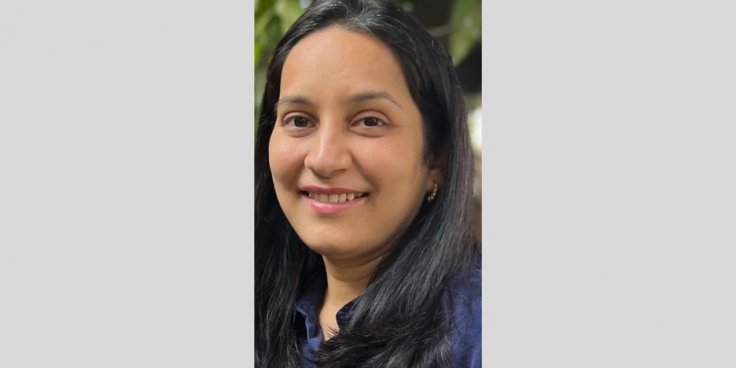
The healthcare industry is undergoing a data revolution. With the global healthcare analytics market projected to reach $129 billion by 2028, driven by the increasing availability of large datasets and advancements in computational tools, the integration of data and technology into medicine is more crucial than ever. From predicting disease outbreaks to personalizing treatment plans, data analytics and bioinformatics are playing an increasingly pivotal role in shaping the future of healthcare. Yet, for these fields to deliver on their promise, experts who can bridge the gap between data science, technology, and clinical medicine are essential.
Dr. Sangeeta Shukla, a bioinformatics scientist, and a former contractor at the federal health agency, embodies this intersection. Her work spans public health data analysis and cutting-edge pediatric cancer research, leveraging vast datasets to uncover insights that could revolutionize both fields. By combining her expertise in biology, data analytics, and software development, Dr. Shukla illustrates how modern medicine can be advanced through the strategic use of data.
Revolutionizing Public Health Data Analysis
Dr. Shukla's role at the federal agency highlights the impact of data-driven decision-making in public health. "Analyzing data from over a thousand health centers across the U.S. and its territories required not just knowledge of reporting tools, but a deep understanding of how healthcare delivery impacts different populations," says Dr. Shukla. The sheer volume of data—encompassing millions of patient interactions and health outcomes—demanded robust analytical frameworks and visualization techniques to provide actionable insights.
To make these insights accessible, Dr. Shukla developed interactive visual dashboards that are now widely used by policymakers, researchers, and healthcare administrators. "Data visualization is not just about making data look pretty; it's about making data understandable and actionable," she notes. For example, consider a dashboard showing the correlation between socioeconomic factors and access to preventive care across different regions. Policymakers could use this to allocate resources more effectively, ensuring underserved communities receive the support they need. The Bureau of Primary Health Care indicates that these dashboards have been accessed by thousands of users, directly influencing funding allocations and policy decisions that affect millions of lives.
Pioneering Pediatric Cancer Research with Bioinformatics
While her contributions to public health are substantial, Dr. Shukla's core passion lies in the realm of bioinformatics and computational biology, where she investigates the genetic underpinnings of pediatric cancer at the Children's Hospital of Philadelphia. Unlike most cancer treatments, which are designed based on clinical trials conducted predominantly with adults, pediatric cancers often involve unique genetic mutations that require tailored approaches. "Most cancer treatments are based on data from adult clinical trials, which isn't always applicable to children. There's a huge need for research focused on the unique genetic profiles of pediatric cancers," she explains.
To illustrate the complexity of this work, imagine two patients with the same type of cancer but vastly different genetic profiles. Current treatments might only work effectively for one of them. By analyzing how specific genes are expressed in pediatric cases, Dr. Shukla's research aims to identify biomarkers that could guide personalized treatment plans for children. "We are looking at how certain genes are expressed differently in pediatric cases, which could lead to more targeted and effective therapies," she says. Studies show that 90% of cancer treatments have been primarily tested on adults, leaving a significant gap in understanding pediatric cancers. Dr. Shukla's work could help bridge this gap, potentially leading to treatments that are twice as effective for specific pediatric cases.
The Power of Interdisciplinary Expertise
Dr. Shukla's ability to drive innovation in bioinformatics is rooted in her interdisciplinary skill set, spanning biology, statistics, and software development. "The challenge isn't just in understanding complex biological systems or mastering data science; it's in integrating these disciplines to answer real-world questions," she remarks. For example, consider the process of identifying genetic mutations that could serve as therapeutic targets: It requires not only biological knowledge to understand gene functions but also data science skills to analyze large datasets and detect patterns.
Her educational background, including a doctorate in bioinformatics from George Mason University, has provided her with a solid foundation for this cross-disciplinary work. "Continuous learning is key. The fields of bioinformatics and computational biology are evolving so rapidly that one must keep up with both technological advances and biological discoveries," Dr. Shukla emphasizes. According to the National Academy of Sciences, the demand for professionals skilled in bioinformatics and computational biology is expected to grow by 35% over the next decade, underscoring the need for experts like Dr. Shukla who can bridge these fields.
Broader Implications for the Future of Medicine
The fusion of data science, bioinformatics, and healthcare is unlocking new possibilities for medical breakthroughs. As Dr. Shukla points out, "The future of medicine is data-driven. Whether it's predicting disease outbreaks, personalizing cancer treatment, or optimizing healthcare delivery, the key will be how effectively we can leverage data." Her work is a testament to the transformative power of integrating data analytics into medical research and public health strategies. A McKinsey report forecasts that data-driven healthcare innovations could save up to $300 billion annually in the U.S., driven largely by enhanced data analytics, predictive modeling, and personalized medicine—all areas where Dr. Shukla is making significant contributions.
Conclusion: Bridging the Gap
Through her work in public health and pediatric cancer research, Dr. Sangeeta Shukla exemplifies how data, technology, and medicine can intersect to solve complex healthcare challenges. As the fields of bioinformatics and computational biology continue to evolve, her expertise and interdisciplinary approach are setting the stage for future innovations that could redefine healthcare as we know it.









